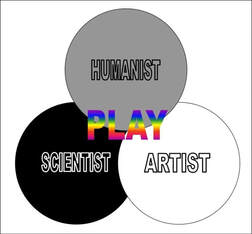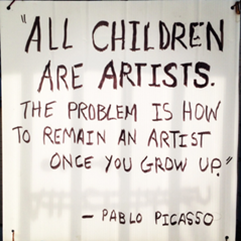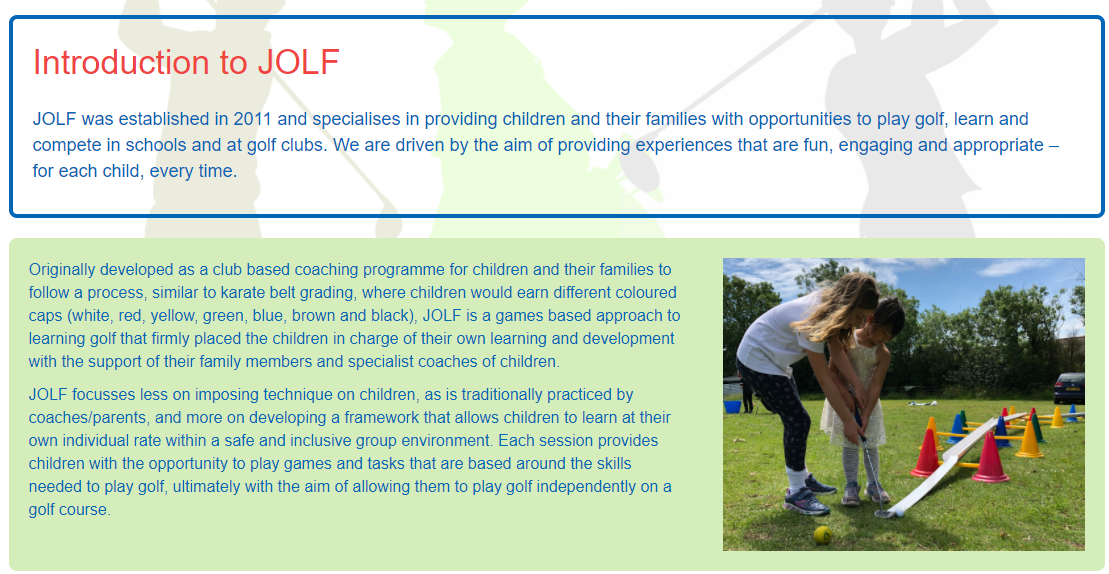PGA Golf Professional for over 20 years. Working in all areas of the business. The majority of his time has been focussed on coaching and during the last 10 specialising in coaching children
Blog https://jolf.golf/the-jolf-man
Twitter & LinkedIn @neilplimmer
More information on JOLF at the end of this blog
One difference between science and art
If you can’t replicate the work and get the same outcome, then it’s not science.
If you can replicate the work and get the same outcome, it’s not art.
Is coaching an art or is it science? Can it be one or the other?
After thinking about this for a while I came to the conclusion that it is both.
In fact I decided that coaching is many different shades of grey.
At times I feel am a SCIENTIST, gathering and using research, to make hypothesises and testing them to gain and share understanding and knowledge. Our values and principles are underpinned by this research, real world experiences and critical review that helps me understand how we all play and learn to develop a lifelong love for golf.
More of the time I would see myself as an ARTIST, creating, inventing and designing environments and experiences that are ever changing and never the same for each child that shares time with us.
All of the time I would consider myself a HUMANIST, I care about how children and their families feel when they play golf and care about what effect their experiences have on their all round well being and development. I want children and their families to enjoy the experiences they share so much they want to come back and do it again and again, and they search out further opportunities on their own to continue playing.
The subtle mix of SCIENCE (our research, knowledge we acquire and learning) and ART (our creative and inventive approach as well as our critical review and reflection of our experiences) and our HUMANIST approach to coaching children all go into the mix of creating PLAY environments and experiences that allow children and their families to enjoy playing golf with us.
As a coach we need to be a subtle and ever changing mix of scientist, artist and humanist. This is seen every time I give a golf club to a child for the first time. It would be very easy when handing them the club to explain everything about how it works and all of the techniques required to strike the ball. But instead I prefer to make sure they understand and appreciate how to play safely and the task, then observe what they do and how they do it. In observing them play I am mentally taking note of what they do, how they do it and considering why they might do it that way. How might I then engage with them to improve and enhance their experience? It will depend, and it depends on lots of different things and this is the grey area between science and art. Often this is by doing and saying nothing but I am always planning ahead to their next experience. “What now and what next?” is a question I ask myself, both for the children and families that play with us and also for me and JOLF. What can and should we do now to maintain enjoyment and engagement and what next for their future experiences.
The more I thought about the quote in relation to my work in golf with children the more I thought about this from Pablo Picasso
Is coaching an ART? Is it a SCIENCE?
Am I biased to a certain approach?
In relation to coaching are they on a continuum?
Are they polar opposites?
Do we live and work in the grey?
Is ART what you can see and the SCIENCE what cannot be seen?
Do we want to replicate sessions with children?
Do we want the same outcome?
Is the magic of PLAY when the ART and SCIENCE of what we do perfectly matched to the children, their experience and the environment?
JOLF
Our approach to playing and learning golf is driven by JOLFology, our guiding principles developed through our ongoing experiences, research and critical review.
Read more about what we do at www.JOLF.golf
Follow and connect with us on Twitter, Facebook, Instagram and YouTube
noun
a person who studies or practices any of the sciences or who uses scientific methods
ARTIST (ˈɑːtɪst) https://www.dictionary.com/browse/artist?s=t
noun
a person who practices or is skilled in an art, esp painting, drawing, or sculpture
a person who displays in his work qualities required in art, such as sensibility and imagination
a person whose profession requires artistic expertise, esp a design era commercial artist
a person skilled in some task or occupation an artist at bricklaying
obsolete an artisan
slang a person devoted to or proficient in something a booze artist; a con artist
HUMANIST [ hyoo-muh-nist or, often, yoo- ] https://www.dictionary.com/browse/humanist?s=t
noun
a person having a strong interest in or concern for human welfare, values, and dignity.
a person devoted to or versed in the humanities.
a student of human nature or affairs.
a classical scholar.
(sometimes initial capital letter) any one of the scholars of the Renaissance who pursued and disseminated the study and understanding of the cultures of ancient Rome and Greece, and emphasized secular, individualistic, and critical thought.
(sometimes initial capital letter) a person who follows a form of philosophical or scientific humanism
adjective Also hu·man·is·tic [hyoo-muh-nis-tik, or, often, yoo‐]
of or relating to human affairs, nature, welfare, or values :our humanist principles; a humanist approach to social reform.
(sometimes initial capital letter) of or relating to the humanities or classical scholarship, especially that of the Renaissance humanists :humanist studies; the Humanist ideology of Petrarch.
of or relating to philosophical or scientific humanism :a humanist philosophy that clashed with his parents’ religious beliefs.







